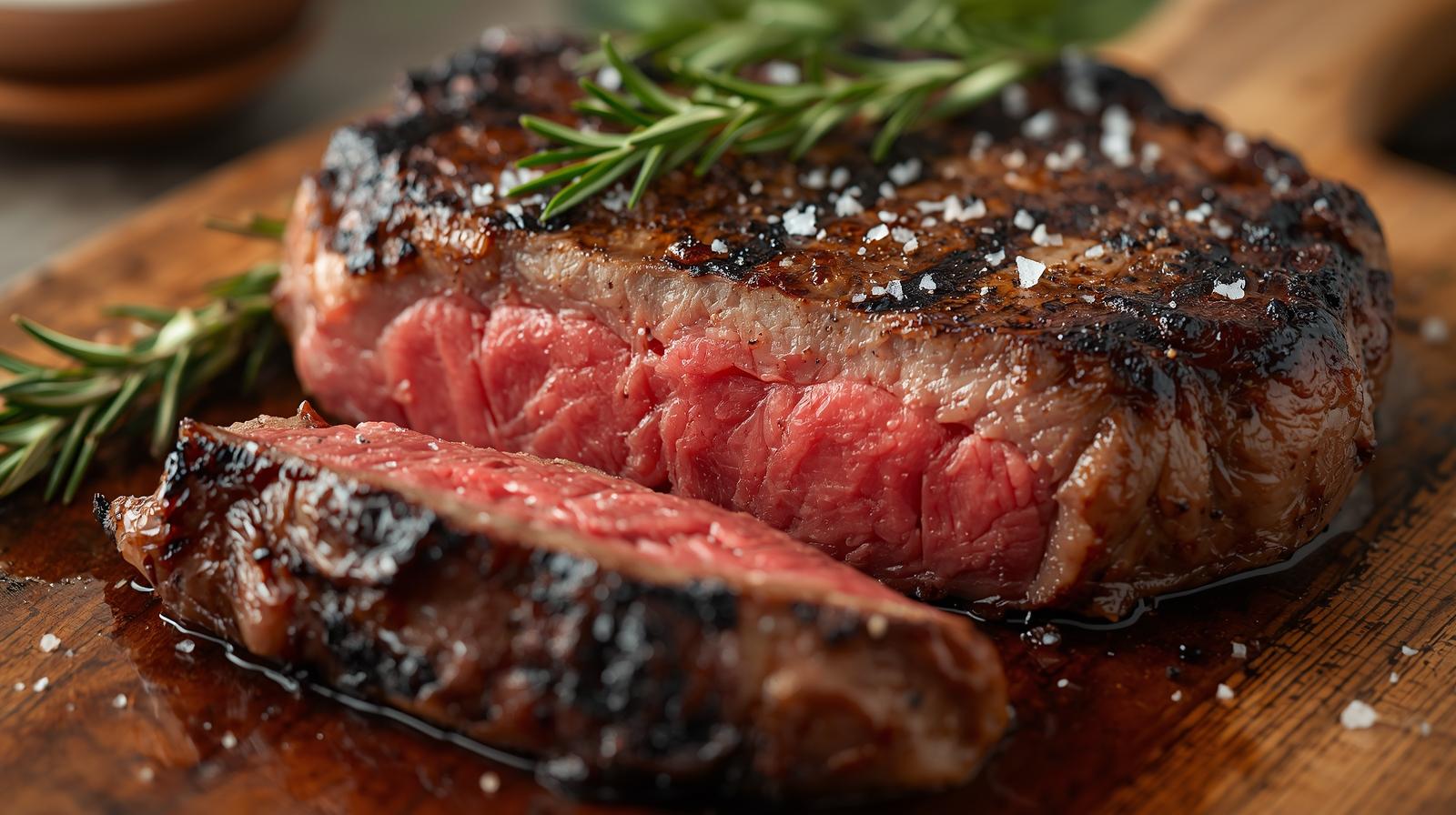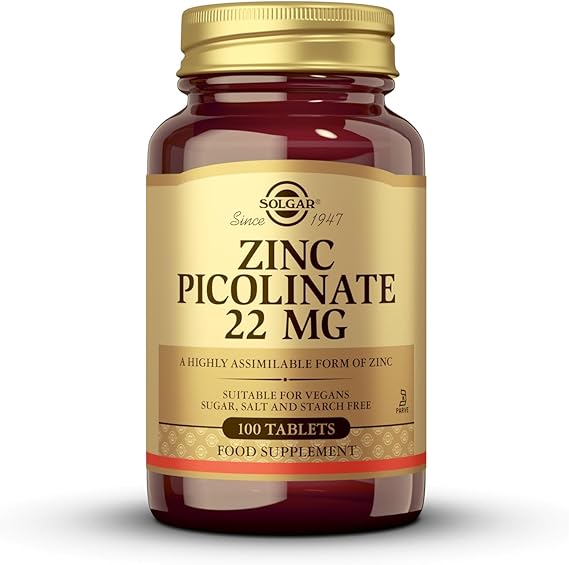Zinc - All you need to know
What is Zinc?
Zinc is an essential mineral, meaning our bodies can't produce it, and we must obtain it through diet or supplements. It's a trace element, present in very small amounts in the human body, yet it plays a crucial role in numerous physiological functions. Think of zinc as a tiny, but mighty, worker bee constantly buzzing around inside you, helping to keep things running smoothly.
Zinc is naturally present in some foods, added to others, and available as a dietary supplement. It is involved in various aspects of cellular metabolism. It is required for the catalytic activity of approximately 100 enzymes and it plays a role in immune function, protein synthesis, wound healing, DNA synthesis, and cell division. Zinc also supports normal growth and development during pregnancy, childhood, and adolescence and is required for a sense of taste and smell.
Top Natural Sources of Zinc:
Fortunately, incorporating zinc-rich foods into your diet is relatively easy. Here are some of the best natural sources of this vital mineral:
- Oysters: These shellfish are veritable zinc powerhouses. Just a few oysters can provide well over the recommended daily intake.
- Red Meat: Beef, lamb, and pork are good sources of zinc, as well as other essential nutrients like iron.
- Poultry: Chicken and turkey offer moderate amounts of zinc.
- Beans: Legumes like chickpeas, lentils, and kidney beans are plant-based sources of zinc, although they also contain phytates, which can inhibit zinc absorption.
- Nuts and Seeds: Pumpkin seeds, cashews, almonds, and sunflower seeds are good choices. They also provide healthy fats and fiber.
- Whole Grains: Foods like quinoa, brown rice, and oats contribute to zinc intake, but similar to beans, they contain phytates.
- Dairy: Milk, yogurt, and cheese contain zinc, although the amount can vary.
- Fortified Foods: Some breakfast cereals and other processed foods are fortified with zinc.
Note: The bioavailability of zinc (how well your body absorbs it) varies depending on the food source. Animal sources of zinc are generally more readily absorbed than plant sources due to the presence of phytates in plants, which can bind to zinc and inhibit its absorption. Soaking beans, nuts, and seeds before consumption can help to reduce phytate content and improve zinc absorption.

The Amazing Health Benefits of Zinc:
Zinc is involved in a wide array of bodily functions, making it essential for overall health. Here are some of its key benefits:
- Immune Function: Zinc is a critical player in immune system function. It's needed for the development and function of immune cells, helping your body fight off infections and illnesses. Studies have shown that zinc supplementation can reduce the duration and severity of the common cold.
- Wound Healing: Zinc is involved in collagen synthesis, immune function, and inflammatory response – all vital for wound repair. People with zinc deficiency often experience delayed wound healing.
- DNA Synthesis and Cell Growth: Zinc is essential for cell division, cell growth, and DNA replication. This makes it particularly important during periods of rapid growth, such as pregnancy, infancy, and adolescence.
- Enzyme Function: Zinc is a cofactor for over 300 enzymes in the body, meaning it's required for these enzymes to function properly. These enzymes are involved in various metabolic processes, including digestion, protein synthesis, and energy production.
- Vision: Zinc is concentrated in the retina and plays a role in maintaining healthy vision. It helps transport vitamin A from the liver to the retina to produce melanin, a protective pigment in the eyes. Zinc deficiency can contribute to impaired vision and an increased risk of age-related macular degeneration (AMD).
- Taste and Smell: Zinc is necessary for the proper function of taste and smell receptors. Deficiency can lead to a reduced sense of taste and smell, which can affect appetite and nutritional intake.
- Cognitive Function: Zinc is involved in neurotransmitter function and is important for cognitive processes such as learning and memory. Studies have linked zinc deficiency to cognitive impairment and neurological disorders.
- Skin Health: Zinc plays a role in maintaining healthy skin. It can help regulate oil production, reduce inflammation, and protect against UV damage. Zinc is often used topically to treat acne and other skin conditions.
- Reproductive Health: Zinc is important for both male and female reproductive health. In men, it's necessary for sperm production and testosterone metabolism. In women, it plays a role in ovulation and fertility.
- Antioxidant Activity: Zinc acts as an antioxidant, helping to protect cells from damage caused by free radicals. Free radicals are unstable molecules that can contribute to aging and chronic diseases.

Symptoms of Zinc Deficiency: What to Watch For
Zinc deficiency can manifest in various ways, and symptoms can range from mild to severe. Here are some common signs of zinc deficiency:
- Impaired Immune Function: Frequent infections, slow wound healing, and increased susceptibility to illness are all indicators of a compromised immune system, which can be linked to zinc deficiency.
- Loss of Appetite: A decreased appetite, especially in children, can be a sign of zinc deficiency. It can also contribute to weight loss.
- Impaired Sense of Taste and Smell: A reduced ability to taste or smell food can be an early symptom of deficiency. Food may taste bland or metallic.
- Skin Problems: Skin rashes, acne, eczema, and slow wound healing can be associated with zinc deficiency.
- Hair Loss: Zinc plays a role in hair growth, and deficiency can lead to hair thinning or hair loss.
- Diarrhea: Chronic diarhea can sometimes be a symptom of zinc deficiency.
- Growth Retardation: In children, zinc deficiency can impair growth and development.
- Cognitive Impairment: Difficulty concentrating, memory problems, and other cognitive issues can occur with zinc deficiency.
- Eye Problems: Impaired vision, night blindness, and increased sensitivity to light can be signs of zinc deficiency.
It's important to note that these symptoms can also be caused by other underlying conditions. If you suspect you may be deficient in zinc, it's best to consult a healthcare professional for proper diagnosis and treatment. A simple blood test can determine your zinc levels.

Who is at Risk of Zinc Deficiency?
Certain individuals are at a higher risk of developing zinc deficiency:
- Vegetarians and Vegans: Plant-based diets can be lower in readily absorbable zinc due to the presence of phytates in plant foods.
- Pregnant and Breastfeeding Women: Increased zinc demands during pregnancy and breastfeeding can lead to deficiency if intake is not sufficient.
- Infants and Children: Rapid growth periods require adequate zinc intake, and deficiency can impair growth and development.
- Older Adults: Zinc absorption may decline with age, increasing the risk of deficiency.
- People with Digestive Disorders: Conditions like Crohn's disease, ulcerative colitis, and celiac disease can impair zinc absorption.
- Alcoholics: Excessive alcohol consumption can interfere with zinc absorption and increase zinc excretion.
- People with Kidney Disease: Kidney disease can affect zinc metabolism and increase the risk of deficiency.
If you fall into any of these categories, it's particularly important to pay attention to your zinc intake and consider supplementation if necessary, under the guidance of a healthcare professional.
Zinc Supplementation: Is it Right for You?
While obtaining zinc through a balanced diet is ideal, supplementation may be necessary in certain cases. Zinc supplements are available in various forms, including zinc sulfate, zinc gluconate, and zinc picolinate. The best form of zinc supplement is still debated, but zinc picolinate is often considered to be more easily absorbed.
Important Considerations:
- Dosage: The recommended daily intake of zinc varies depending on age, sex, and life stage. The upper limit for zinc intake is 40 mg per day for adults. Exceeding this limit can lead to adverse effects.
- Interactions: Zinc supplements can interact with certain medications, including some antibiotics and diuretics. Talk to your doctor or pharmacist before taking zinc supplements if you are taking any medications.
- Side Effects: High doses of zinc can cause nausea, vomiting, diarrhea, and abdominal cramps. Long-term excessive zinc intake can interfere with copper absorption, leading to copper deficiency.
- Consult a Healthcare Professional: Before starting zinc supplementation, it's always best to consult with a healthcare professional to determine if it's appropriate for you and to determine the correct dosage.
In Conclusion
Zinc is an indispensable mineral that plays a vital role in countless bodily functions. From bolstering the immune system to supporting wound healing and maintaining healthy vision, zinc is essential for overall health and well-being. By incorporating zinc-rich foods into your diet and addressing any potential deficiencies, you can unlock the power of this mighty mineral and thrive. Remember to consult with a healthcare professional if you suspect you may be deficient or are considering supplementation.
This post includes affiliate links to Amazon. If you choose to buy through these links, I may earn a small commission, which helps support this blog—thank you.
Recommended Zinc Supplement:


